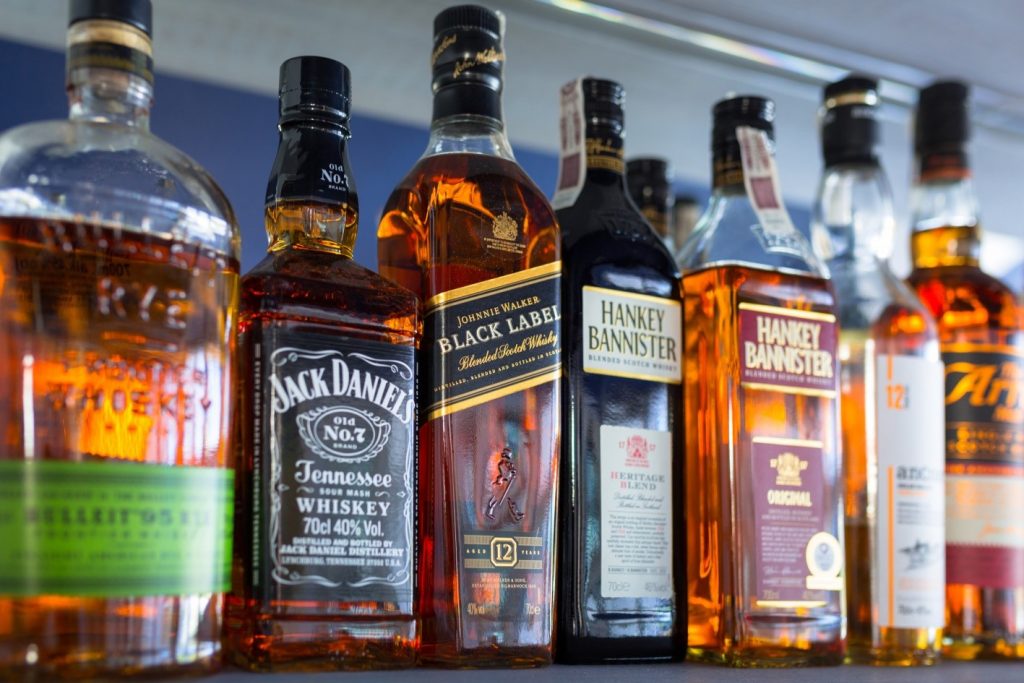
By M.H. Cavanaugh
Christian Action League
March 18, 2020
Two significant actions involving alcohol policy in North Carolina took place last week. The Eastern Band of Cherokee Indians passed their own version of the Brunch Bill, and North Carolina’s ABC Commission moved forward on rules for liquor tastings in local ABC stores.
“We are living in a time when balanced judgment no longer certifies that intoxicating liquors leave us with unbalanced budgets, unbalanced men and women, unbalanced homes, and an unbalanced social order,” said Rev. Mark Creech, executive director of the Christian Action League. “Call me old-fashioned, even uneducated, if you will, but the facts are clear, alcohol-related harms are higher than ever, and yet erroneously in the name of commerce and personal freedom, lawmakers and liquor profiteers work together to expand access to a recreational drug that does greater harm than all of the other illicit drugs combined.”
According to the Smokey Mountain News, the Eastern Band of Cherokee Tribal Council approved an ordinance with little discussion or debate, which now allows alcohol sales to begin on the reservation before noon.
Ordinances like the one passed by the Cherokee were made possible by a law the North Carolina General Assembly passed in 2017. The measure, SB 155 – ABC Omnibus Legislation, which the media dubbed as the “Brunch Bill,” authorized county commissioners, town and city councils to allow bars, hotels, private clubs, and restaurants to roll back the time for alcohol sales from 12:00 noon to 10:00 a.m. on Sunday mornings – an increase of two hours. It also expanded the additional two hours of purchase for retail sales of beer and wine in places like convenience and grocery stores.
Before the Brunch Bill, sales of alcohol before noon were not available anywhere in the state.
The Smokey Mountain News also noted that Brunch Bill proposals have prompted “lively debates in many localities” throughout Western North Carolina, “bringing out passionate support and passionate opposition.”
The newspaper reported “local governments, like the towns of Sylva and Franklin, passed it with little fanfare or opposition. Others, like Maggie Valley, passed it only after a long, drawn-out public process. And some, like Jackson County and Dillsboro, didn’t pass it at all.”
Rev. Creech said there are plenty of studies showing that increasing hours of sale by as little as two hours exacerbates alcohol-related harms.
“I think we should also be concerned about the way the Bruch Bill over the long haul will negatively impact church participation. In the study, ‘The Church vs. the Mall,’ researchers determined that when a state repeals its blue laws, religious attendance falls, and church donations and spending fall as well, and the results of this study were not affected by current declines in religiosity,” said Creech.
Creech said he hopes that other communities who may be considering “Brunch Bill” initiatives will access the Christian Action League’s four-part No Sunday Brunch Toolkit. The toolkit provides critical information for town, city, and council leaders to consider.

Permanent Rules for Liquor Tastings
Meanwhile, in Raleigh, A.D. “Zander” Guy, Chairman of the North Carolina Alcoholic Beverage Control Commission, presided over a meeting in which the Board began the process of making the rules permanent for liquor tastings in local ABC stores.
The process for making the rules permanent involves filing them with the Office of Administrative Hearings for publication in the NC Register. A public hearing is also planned during a meeting of the commission on May 13. Public comment will be allowed on the new procedure for up to 60 days.
Last year, the North Carolina General Assembly approved HB 536 – ABC Omnibus Regulatory Reform, which included a provision that now allows for local ABC liquor stores to have liquor tasting promotions.
“The Christian Action League provided the primary opposition to liquor tastings in ABC stores,” said Rev. Creech, “not because we were concerned about the small samplings or any prospective dangers a liquor tasting event might cause for intoxication or other unfortunate consequences. Our concerns were always philosophically-based.”
Creech explained that characteristically, ABC stores have never been about promoting the sale of liquor. ABC stores and their local Boards have kept to a position of neutrality and avoided appearances of endorsements or encouragements to drink. The purpose of ABC stores has always been to provide accessibility to liquor through a highly regulated form of liquor sales – something the electorate authorized at the ballot box. Liquor tastings, however, cross the line and change the core objective of ABC stores from one of regulation and control to an alliance between the stores and the industry to promote liquor sales. It creates a paradigm shift from neutrality and control to one concentrated on profit.
“Jesus taught that no man could serve two masters; either he will hate one and love the other,” said Creech. “And I contend that though this change seems small, it is much greater than realized. ABC cannot serve two masters. An ABC store is either about control, or it has the potential to become just like any other private liquor store. Privatization of liquor sales would be a disaster for public health and safety in this state.”
